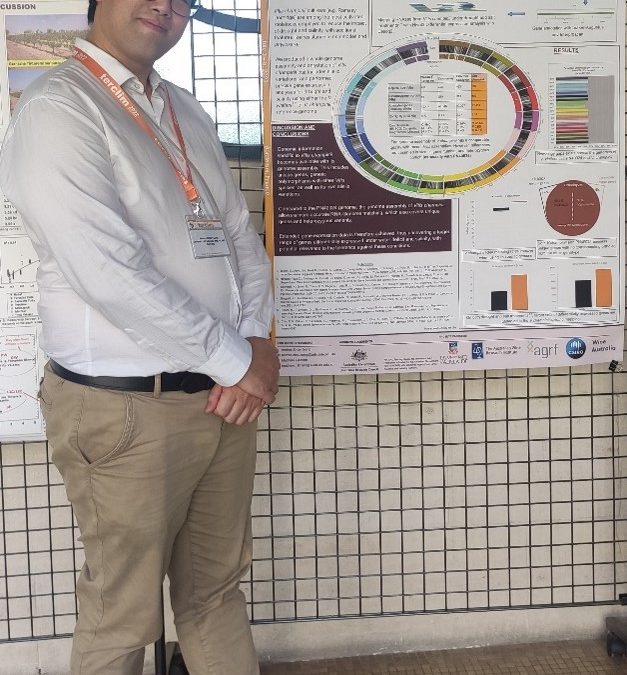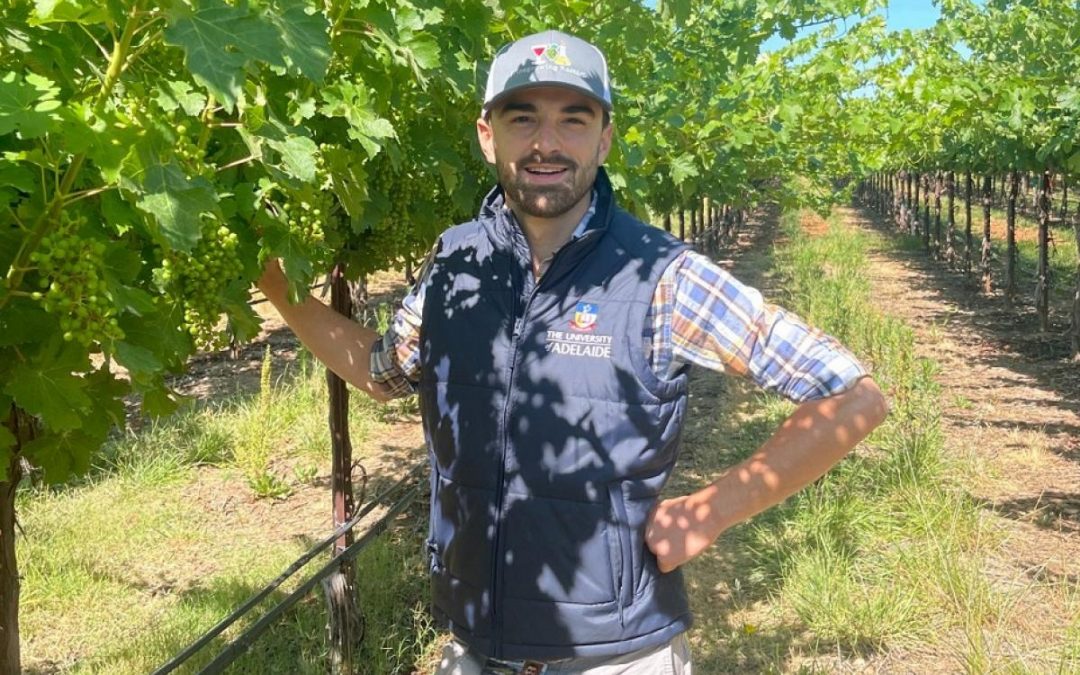Unlocking the genetic potential of grapevine for sustainable production
Background

Photo: D-T. Pham
The majority of major wine producing grapevine varieties planted in vineyards have been produced through clonal propagation. This has narrowed grapevines genetic diversity and leaves them susceptible to climate change and disease pressures. Furthermore, the area suitable for grapevine production in major wine growing regions has been predicted to decrease by at least 25% by 2050, and potentially up to 73%. At the same time, new regions will become climatically suitable; however, how current varieties will adapt to these new regions is unknown.
Objectives/aims
This project will explore the genetic factors that underpin natural variation in reproductive development and yield, specifically inflorescence primordia development and how this relates to bunch number and bunch architecture in established and alternative varieties. The project will also explore how temperature and management differentially affect selected grapevine varieties using molecular and phenotypic characterisation. The outcomes of this research will inform variety/clonal selection for a changing climate.
ON THIS PAGE
Latest News

Macrowine Conference – Isara Vongluanngam
By Isara Vongluanngam Every two years, wine researchers from around the world come together to exchange their latest findings and knowledge at OenoMacrowine conference. This renowned international congress focuses on macromolecules and secondary Metabolites of vine...

Andres Experience at Terclim 2022 | Bordeaux, France
By Andres Zhou Tsang I am sure many of the ARC Training Centre Members have very fond memories of the 13th International Terroir Congress, taking place in Adelaide back in 2020, which connected grape and wine scientists and industry leaders from all over...

Delaying grapes from ripening results in more flavoursome wine
Republished with permission from The University of Adelaide Newsroom Researchers from the University of Adelaide have crunched the data on the best methods to delay grapes ripening on the vine, leading to better quality wine. “Our research focused on three...



